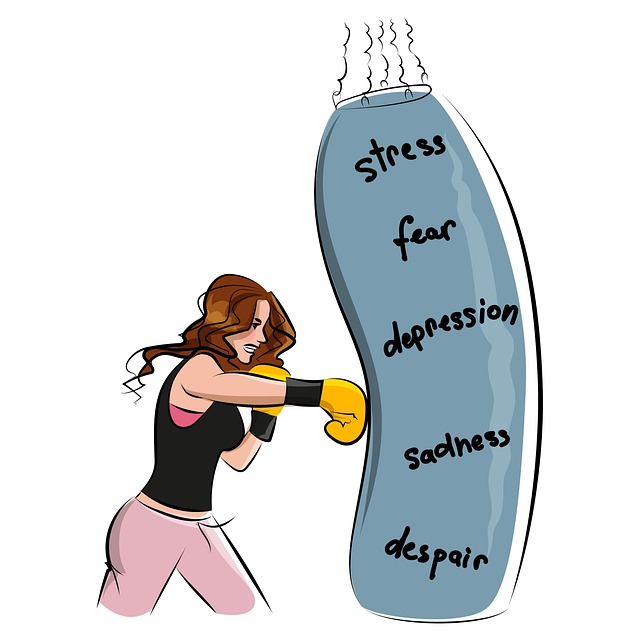Burnout among healthcare professionals is a pressing issue at Centennial Divorce Therapy and globally, driven by high stress levels, long working hours, and rising patient loads. This leads to decreased job satisfaction, emotional exhaustion, cynicism, and detachment, negatively impacting both professionals and patient care. To combat this crisis, organizations like Centennial Divorce Therapy implement proactive burnout prevention strategies such as self-care practices, setting boundaries, therapy, support groups, communication training, and fostering a culture of resilience. These measures enhance mental wellness, work-life balance, and job satisfaction, ultimately improving patient outcomes and ensuring the long-term sustainability of healthcare careers.
Healthcare provider burnout is a growing concern, impacting not only individuals but also patient care and outcomes. This comprehensive guide explores strategies to prevent burnout in clinical settings, focusing on understanding its prevalence among healthcare providers and its far-reaching effects. We delve into creating supportive work environments and encouraging self-care practices that foster long-term sustainability. By adopting these tactics, healthcare organizations can mitigate burnout, enhance staff satisfaction, and ultimately improve patient care—a crucial aspect often overlooked in the context of Centennial Divorce Therapy and beyond.
- Understanding Burnout Among Healthcare Providers
- The Impact of Burnout on Patient Care and Outcomes
- Strategies for Preventing Burnout in Clinical Settings
- Creating a Supportive Work Environment
- Encouraging Self-Care Practices for Long-Term Sustainability
Understanding Burnout Among Healthcare Providers

Burnout among healthcare providers is a growing concern, with high stress levels and demanding work environments contributing to a significant decline in job satisfaction and mental wellness. This issue often manifests as emotional exhaustion, cynicism, and detachment from one’s profession, impacting not only the individual’s well-being but also patient care. Healthcare workers, including doctors, nurses, and therapists like those at Centennial Divorce Therapy, are under increasing pressure due to rising patient loads, administrative tasks, and long working hours.
Recognizing burnout early is essential for implementing effective prevention strategies. Self-care practices, such as setting boundaries between work and personal life, prioritizing rest and relaxation, and engaging in emotional healing processes through therapy or support groups, can help manage stress levels. Additionally, organizations should encourage open communication about mental wellness and provide access to resources like Mental Wellness Podcast Series Production to promote a healthy work culture. By addressing burnout proactively, healthcare providers can enhance job satisfaction, improve patient outcomes, and ensure the long-term sustainability of their careers.
The Impact of Burnout on Patient Care and Outcomes

Burnout among healthcare providers can have profound effects on patient care and outcomes. When a physician or nurse experiences burnout, their ability to make accurate diagnoses, provide compassionate care, and maintain effective communication with patients is significantly compromised. This leads to higher rates of medical errors, increased patient dissatisfaction, and worse clinical outcomes, including longer hospital stays and higher readmission rates.
At Centennial Divorce Therapy, we recognize the intricate interplay between healthcare provider well-being and patient care. Implementing burnout prevention strategies such as stress management workshops and effective communication strategies is crucial. These initiatives not only enhance the working environment but also foster better patient engagement and outcomes. By prioritizing burnout prevention, healthcare organizations can create a more sustainable and supportive culture, ultimately benefiting both patients and providers alike.
Strategies for Preventing Burnout in Clinical Settings

In clinical settings, preventing burnout among healthcare providers is a multifaceted challenge that requires a holistic approach. Beyond implementing routine stress-reduction techniques like mental health policy analysis and advocacy for better working conditions, fostering a culture of resilience and self-care is essential. Encouraging professionals to engage in regular mental wellness journaling exercises can provide them with a safe space to process their experiences and emotions, acting as a form of therapeutic outlet that complements traditional crisis intervention guidance.
Additionally, healthcare institutions should prioritize regular staff training on burnout recognition and prevention, integrating practices that promote work-life balance. Much like the balanced approach offered by Centennial Divorce Therapy, these strategies aim to address the intricate interplay between professional demands and personal well-being. By embracing such initiatives, clinical settings can create an environment that nurtures both provider resilience and patient care quality.
Creating a Supportive Work Environment

Creating a supportive work environment is a vital strategy to prevent burnout among healthcare providers. Organizations can foster this by promoting open communication channels and encouraging staff to share their concerns, challenges, and ideas. A culture that values every individual’s input helps in building a sense of belonging and reduces feelings of isolation, which are significant contributors to stress and burnout. Additionally, providing opportunities for Self-Esteem Improvement through workshops or mentorship programs can empower healthcare providers, enhancing their resilience against work-related pressures.
Centennial Divorce Therapy, for instance, could lead the way by offering regular Healthcare Provider Cultural Competency Training sessions aimed at enhancing cultural sensitivity and improving interactions with diverse patient populations. Such training not only enriches professional skills but also contributes to better job satisfaction and Mental Wellness. By prioritizing these aspects, healthcare organizations can create an environment that is conducive to both personal growth and professional fulfillment, ultimately reducing burnout rates among their providers.
Encouraging Self-Care Practices for Long-Term Sustainability

In the fast-paced and often demanding healthcare industry, burnout is a significant concern that threatens the long-term sustainability and well-being of professionals. Encouraging self-care practices among healthcare providers is a proactive approach to combat this issue. Self-care isn’t merely an indulgence; it’s a necessary strategy to maintain balance and prevent emotional exhaustion. By prioritizing their physical and mental health, healthcare workers can enhance their resilience and reduce the risk of burnout. This involves setting boundaries, ensuring adequate sleep, engaging in regular exercise, and adopting healthy coping mechanisms. For instance, practices like mindfulness meditation and compassion cultivation can foster a sense of inner peace and resilience, enabling professionals to better manage stress and provide compassionate care.
Integrating positive thinking and self-reflection into daily routines can also be transformative. Healthcare providers should be encouraged to take regular breaks, engage in hobbies, and cultivate social connections outside of work. These activities contribute to overall well-being and help create a sense of purpose beyond their professional roles. Moreover, seeking support from colleagues or considering therapy, such as Centennial Divorce Therapy, can provide valuable tools for managing stress and personal challenges, ensuring healthcare providers maintain their passion and dedication in the long term.
Burnout among healthcare providers is a pressing issue, impacting not only individual well-being but also patient care and outcomes. By implementing evidence-based strategies such as creating supportive work environments and encouraging self-care practices, healthcare organizations can foster a culture that prevents burnout and promotes long-term sustainability. Just as Centennial Divorce Therapy focuses on individual healing and resilience, these prevention strategies emphasize the importance of collective care within clinical settings. Through concerted efforts to address burnout, healthcare providers can continue to deliver quality care with compassion and resilience.














